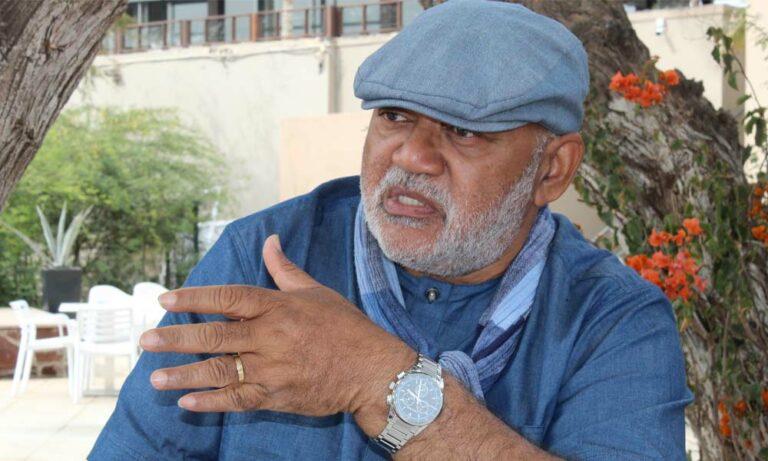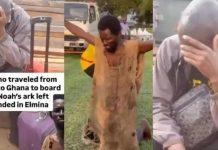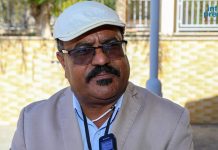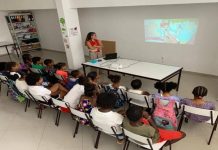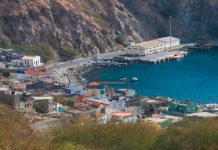Africa-Press – Cape verde. Michel Henri Kokra de Pina, of Cape Verdean and Ivorian origin, met Cape Verde in 2015 and obtained nationality in 2017, after about 30 years of researching the documents of grandparents and great-grandparents. According to him, the overwhelming majority of our community in Côte d’Ivoire do not have Cape Verdean documents and feel neglected by the State. It is necessary that the “eleventh island” comes out of the discourse and becomes practical, he exhorts.
Lawyer and consultant in the areas of investments and intellectual property, Michel de Pina was born in Abidjan, the son of a Cape Verdean mother, from the island of Fogo, and an Ivorian father. For 30 years, he tried to gather documents from his grandparents and great-grandparents, but he only managed to do so in 2017, after he started visiting Cape Verde, since, as he told this newspaper, the honorary consul installed in the country only responds to very basic needs of the community. With all the documents in hand, he obtained nationality six months later.
Pina is currently president of Sodade – Associação da Diaspora Cabo Verdean na Côte d’Ivoire, which is dedicated to the promotion of Cabo Verdean culture in the country, and which includes around 1500 Cabo Verdeans of origin, descendants of the 3rd and 4th generations. . One of his biggest demands is to be able to establish links with Cape Verde and obtain the right to citizenship.
“There are probably larger communities in other countries, like Senegal. But, it is a very well integrated community. We are present at all levels of Ivorian society, from executives, artists, traders, lawyers, judges, doctors, university professors, among others”, he underlined, regretting, on the other hand, that the majority hold Ivorian nationality but, “curiously”, not Cape Verdean nationality.
11th island only in speeches
Despite the efforts of the honorary consul and those of the association, the community, he says, feels “forgotten” and “neglected”. “For example, our young people need scholarships, but they cannot access them because they do not have Cape Verdean nationality”.
The Cape Verdean State, he said, must create a special and sustained mechanism that allows the diaspora to assume their citizenship rights, in addition to the “promises of the various official delegations that visit Abidjan”, without any being fulfilled.
“We have to facilitate the search for documentation that allows our members to trace their origins, which should result in the availability of files to carry out this investigation”, maintains Michel de Pina.
Once this documentation is collected, he explained, the means must be implemented so that the compatriots can, without having to travel to Dakar or Praia, have their passports and CNI issued in Abidjan, or anywhere else where they live.
It also asks that the Consulate be provided with a suitcase to collect biometric data, providing it with the necessary means for its mission or, still, building an effective collaborative environment around it and around the association, to solve the problems of its compatriots.
“We Cape Verdeans are dispersed, not only physically, but also culturally. There are those who live in the archipelago and we from the diaspora, which everyone says is the “eleventh” island. As such, she must be heard in her request for recognition, for concrete actions that will transpose this slogan into reality and that will make us complete citizens like everyone else, in particular, exercising our right to vote in national elections”, he urged. .
Thirst for recognition and risk of disinterest
The State, according to the jurist, must continue to make efforts to take advantage of the strengths of its diaspora, namely the African one, which “has quality human resources, capable of bringing added value to our country”, but which is often forgotten, to the detriment of the European or American diaspora.
If nothing is done in this sense, he said, it could increase the lack of interest of many in the country, increase oblivion and make many disappear without ever having seen Cape Verde.
“We watched, helplessly, the gradual disappearance of the memory of Cape Verde in our community. Very few of us still speak Creole and young people are increasingly moving away from it. Our compatriots are discouraged to see their efforts to obtain the recognition of their nationality constantly postponed, for reasons of administrative delay”, he warns.
Michel Henri de Pina welcomes the existence of diaspora deputies in parliament, but says he would like that, in addition to this form of representation, a country like Cape Verde could open a direct place for its diaspora, which represents more than 3 /4 of its population, through the creation of a Diaspora Council, with an advisory voice on issues of national interest.
Economic integration in West Africa
“It is essential to solve the country’s isolation”
Although he has no plans to make large personal investments in Cape Verde, the consultant hopes, through work he is already developing, to attract investors in the business world in West Africa, based on the fact that Cape Verde offers “many interesting opportunities” , in several sectors.This work will be done, he says, through the creation, in Praia, of a consultancy office, to support Cape Verdean companies that wish to project themselves in the “natural” and “giant dimension” market, which is Africa. western.
“To give you an idea, the city of Abidjan alone has more than 5 million inhabitants, while ECOWAS has a GDP of 628 billion dollars and an estimated population of almost 350 million inhabitants. It is absolutely essential that the Cape Verdean private initiative manages, with the support of the State, to solve the country’s isolation problems, mainly maritime, which still remains a mystery to me”, he considers.
In this context, it is strange that, despite the presence of more than 20,000 compatriots in Senegal, there is no regular shipping line between Dakar and Praia, “not to mention transshipments from other African countries to Cape Verde”.
“I think that the creation of a national armament is essential and urgent for the commercial development of Cape Verde, without which the State’s efforts to attract investors could be reduced, due to the lack of means of distributing the products on the continent”, he warns.
The friends and colleagues he brings to Cape Verde, he guarantees, have so far had a very favorable assessment, but with the same thought that “CapeVerde is not in Africa”.
“For the visitor, Cape Verde often appears to be more developed, although it is necessary to agree on the meaning of this concept. But, in general, it is true that, more than skyscrapers, it is the level of human development, the high level of literacy, health, security and public peace – when compared to other African realities –, infrastructure and, above all, republican institutions and their functioning”, he explains.
“It is a treasure that must be preserved at all costs. We are proud of Cape Verde’s excellent international reputation in terms of governance, social responsibility, integrated development, especially the development of culture which, in my opinion, is today the country’s leading industry, after tourism”, he pointed out.
A life between Cape Verde and Ivory Coast
Michel Henri Kokra de Pina, 62, married and father of three daughters, visits Cape Verde, where he has family and friends, between three and four times a year, since he “discovered” the other half of his identity. Accompanied by his wife, Mama de Pina, an Ivorian, but who is now also a Cape Verdean citizen, the couple divides their months between the city of Praia, where they have an apartment, and Ivory Coast. With an equal sense of belonging in both countries, they wish to spend more time in Cape Verde once they retire.“I have always refused to erase or privilege a part of my identity, which is, of course, complex, but which would not remain if one of its components was amputated. I am, therefore, totally Ivorian and Cape Verdean. We are here talking about blood and cultures that, even when mixed, are expressed together in a balanced way and assumed in the same personality”, he explains.
To locate family members in Cape Verde, he had the help of genealogical research and DNA tests, which allowed him to document the family’s history and greatly expand his lineage.
In this regard, he congratulates the State of Cape Verde for the “important efforts made to have and publicize an extremely well-preserved civil state, which serves as an example to many African countries”.
“Discovering Cape Verde was an overwhelming experience for me and my family. I remember a great friend who asked me if I had come to “take my share of the stones”. Yes, more or less this. Even if there is just that, I am happy to be a part of it and to take my part in this country with which I have forged an almost mystical bond,” she underlines.
As far as he is concerned, he says that he is available to the Cape Verdean authorities to collaborate in whatever way he can, as well as to any entrepreneur or investor who wants to get closer to the West African market.
Michel did all his studies in Côte d’Ivoire, from kindergarten to university, having graduated in Law and Law. He works in the field of Ohada Business Law and intellectual property, in addition to being an accredited agent in industrial property, authorized by the African intellectual property organization – OAPI.
For More News And Analysis About Cape verde Follow Africa-Press

